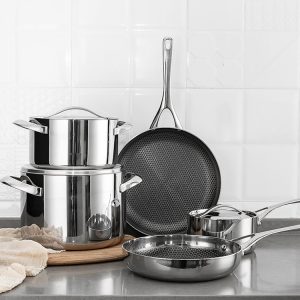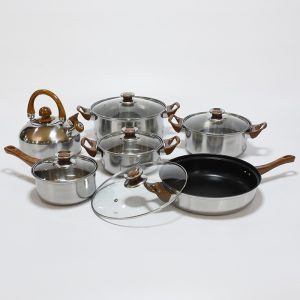Mastering kitchen utensils can indeed make cooking much easier and more enjoyable. Here are some tips to help you become proficient in using kitchen utensils effectively:
- Knife Skills: Learn basic knife techniques like chopping, dicing, and mincing. Practice using a chef’s knife and paring knife for different tasks. Proper knife skills will save time and ensure even cooking.
- Cutting Board Techniques: Use the appropriate cutting board for different ingredients. For instance, use a separate board for raw meat and another for fruits and vegetables to prevent cross-contamination.
- Utensil Maintenance: Take care of your utensils by handwashing them promptly after use, especially if they are not dishwasher-safe. Proper maintenance extends their lifespan.
- Grasping Techniques: Develop the right grip on utensils, such as holding a chef’s knife with a pinch grip for more control and less strain on your wrist.
- Understanding Heat Resistance: Know which utensils are safe to use on high heat and which ones should only be used for low to medium heat.
- Matching Utensils to Cookware: Use non-scratch utensils with non-stick cookware to avoid damaging the coating. For high-heat cooking, choose utensils that can withstand the temperature.
- Measuring Accurately: Master using measuring cups and spoons to ensure precise ingredient quantities, especially in baking.
- Whisking Techniques: Learn how to whisk effectively to avoid lumps and ensure smooth sauces and batters.
- Spatula Skills: Use a spatula to flip delicate foods gently and to scrape the sides of bowls and pans effectively.
- Tongs Control: Practice using tongs to grasp and turn food without crushing it.
- Colander Usage: Master draining pasta and rinsing vegetables using a colander without losing ingredients down the sink.
- Basting and Brushing: Learn how to use a basting brush for even application of sauces and glazes.
- Slicing Techniques: Practice using a mandoline or a sharp knife for consistent slicing of vegetables.
- Peeling Perfection: Develop your vegetable peeling skills to minimize waste and improve presentation.
- Multi-Tasking: Utilize multi-functional utensils, such as a whisk that doubles as a basting brush, to save space and time in the kitchen.
- Seasoning with Salt and Pepper: Master the art of seasoning dishes with salt and pepper to enhance flavors.
- Time Management: Use kitchen timers effectively to avoid overcooking or undercooking dishes.
- Safely Handling Kitchen Tools: Learn how to safely handle sharp utensils and hot cookware to prevent accidents.
- Storage Solutions: Organize your utensils efficiently for easy access and to keep your kitchen tidy.
- Continuous Learning: Keep learning new techniques and tips from cooking books, online tutorials, and cooking classes to expand your skills.
By mastering various kitchen utensils and techniques, you’ll be able to tackle more challenging recipes with confidence and efficiency, making cooking a rewarding and enjoyable experience.







